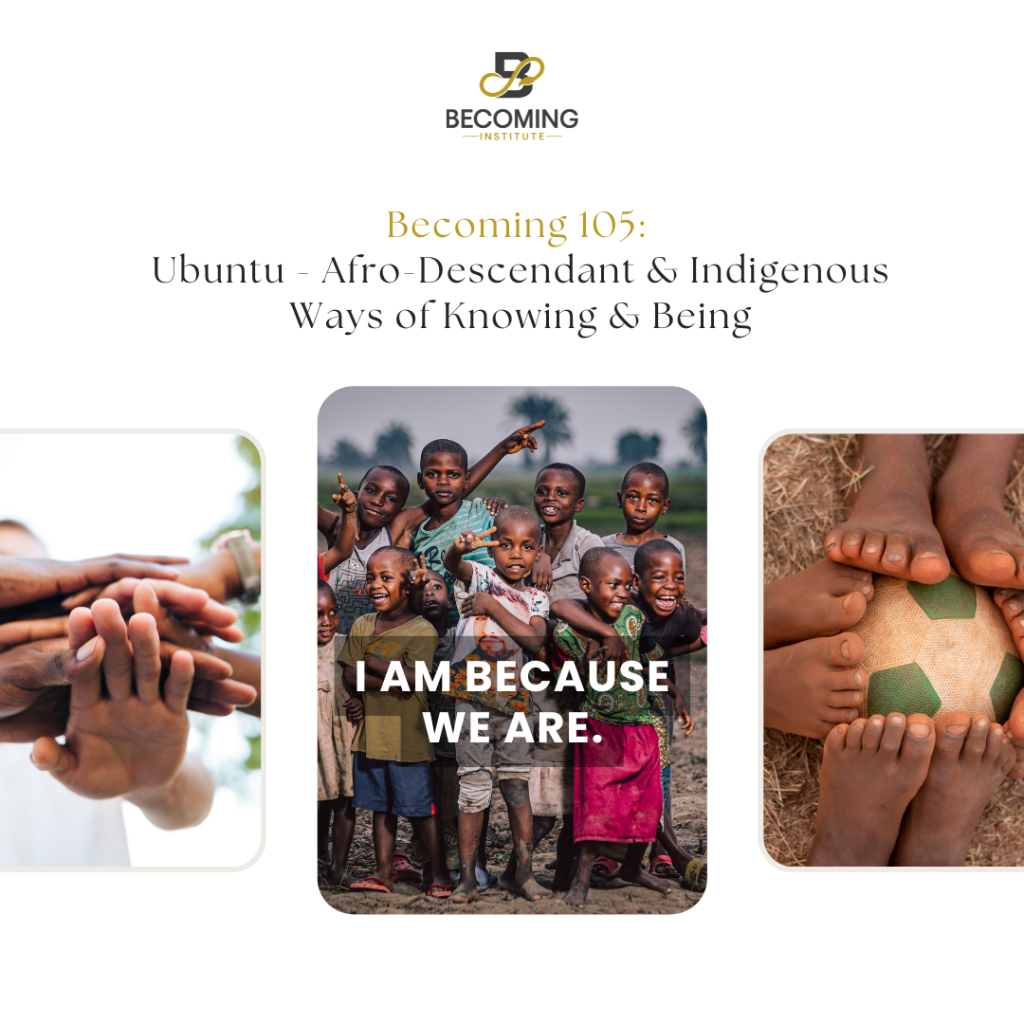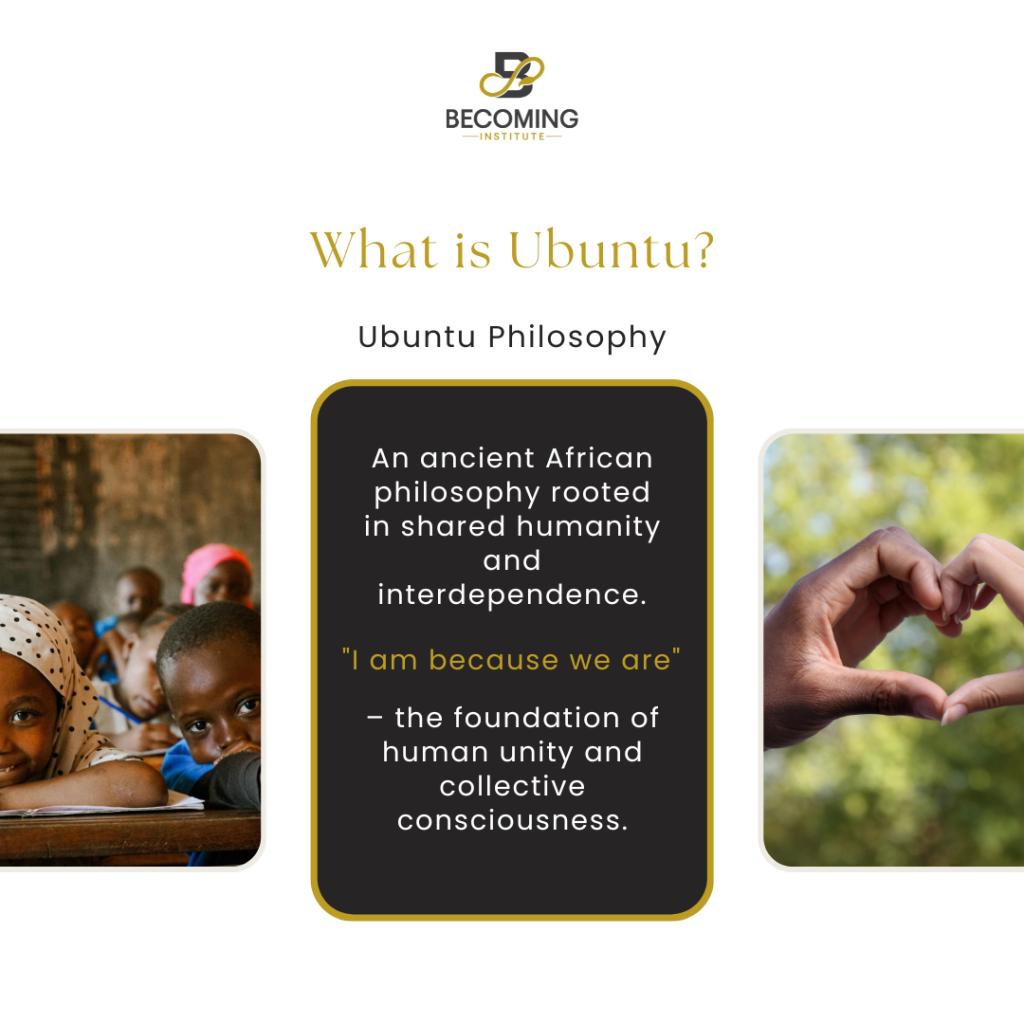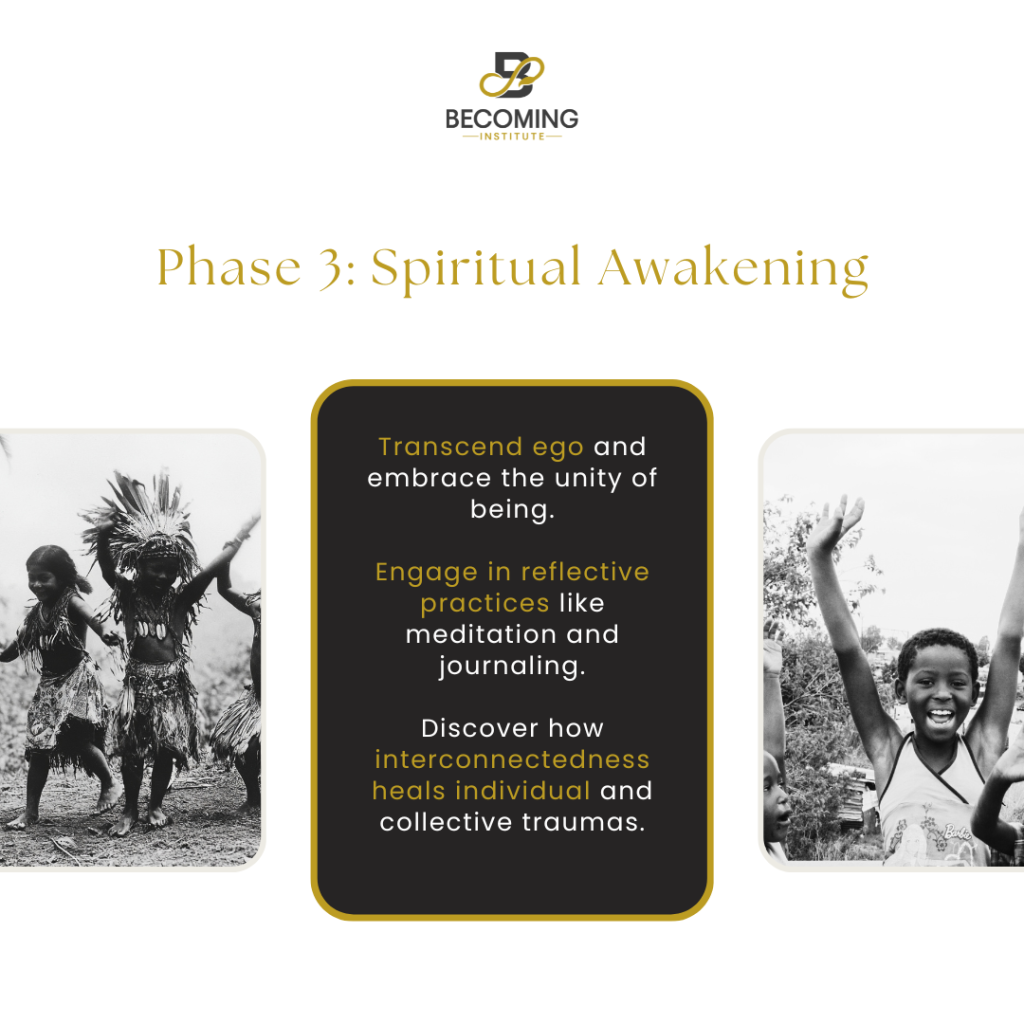Racism in the workplace creates barriers to equity, productivity, and employee well-being. From microaggressions to systemic biases in hiring and promotions, these inequities take a significant psychological and emotional toll on marginalized employees. The effects are far-reaching, often resulting in reduced morale, disengagement, and high turnover.
To address these issues effectively, organizations must go beyond surface-level Diversity, Equity, and Inclusion (DEI) initiatives. A deeper approach is needed—one that acknowledges both systemic structures and the emotional trauma caused by racism.
Ubuntu, an African philosophy centered on shared humanity and interconnectedness, provides a transformative framework for healing racism. When combined with trauma-informed DEI practices, Ubuntu fosters empathy, mutual care, and collective responsibility. Together, these approaches offer a path toward creating workplaces where everyone feels valued and supported, paving the way for sustainable cultural transformation.
Understanding Racism’s Impact in the Workplace
The persistence of racism in workplace culture manifests in both overt and subtle ways, undermining inclusivity and equality.
1. Psychological Effects:
Microaggressions—everyday verbal and non-verbal slights—reinforce stereotypes and create exclusionary environments. For example, employees of colour often face comments questioning their competence or assumptions about their background. These experiences accumulate, leading to stress, anxiety, and diminished self-esteem.
A 2020 study by the Harvard Business Review revealed that 76% of Black employees experienced racism in their workplace, often in the form of microaggressions. These instances not only harm individuals but also erode trust within teams.
2. Structural Inequalities:
Systemic barriers continue to limit opportunities for marginalized groups. Black and Indigenous employees, for instance, are often underrepresented in leadership roles. Studies show that Black professionals hold only 3.2% of executive or senior leadership positions in the U.S., despite comprising over 13% of the population.
Hiring disparities, pay gaps, and lack of representation perpetuate cycles of inequity, making it harder for organizations to achieve true inclusivity.
3. Examples and Statistics:
3.1- Black job applicants with identical resumes to white applicants are 50% less likely to receive callbacks (Bertrand & Mullainathan, 2004).
3.2 – The pay gap for Black and Indigenous employees compared to white counterparts remains significant, with Black employees earning only 87 cents for every dollar earned by white employees in the U.S.
Addressing these challenges requires not only structural changes but also a cultural shift that prioritizes healing and empathy.
Also Read: Rethinking Black History Month: Addressing Racism with a Year-Round Ubuntu Approach
Healing Through Ubuntu
Ubuntu, meaning “I am because we are,” embodies the idea that individual well-being is deeply interconnected with the well-being of others. This philosophy challenges competitive and individualistic workplace norms, emphasizing collaboration and mutual care.
1. Fostering Empathy and Mutual Care:
Ubuntu encourages employees to see their colleagues not as competitors but as part of a collective community. By prioritizing shared goals and interpersonal understanding, Ubuntu creates an environment where empathy thrives. This cultural shift reduces divisions and fosters unity.
2. Creating Spaces for Dialogue and Healing:
Open communication is essential for addressing the pain caused by racism. Ubuntu-inspired practices, such as restorative circles and facilitated discussions, allow employees to share their experiences and feel heard. These spaces build trust and promote collective healing
3. Real-World Examples of Ubuntu in Action:
3.1 – A multinational tech company implemented Ubuntu principles by creating mentorship programs for underrepresented groups. These programs paired senior leaders with employees from marginalized backgrounds, fostering a culture of collaboration and shared growth.
3.2- Community-building initiatives, such as team retreats focused on empathy exercises, have helped organizations strengthen interpersonal relationships and reduce workplace conflicts.
Ubuntu’s emphasis on interconnectedness transforms workplace culture by prioritizing humanity over hierarchy, enabling genuine connections to flourish.
Trauma-Informed DEI Practices
Addressing racism requires acknowledging its emotional toll on employees and creating systems to support healing.
1. Recognizing the Emotional Toll:
Racism leaves lasting scars on individuals, affecting mental health and well-being. Trauma-informed DEI practices focus on understanding these impacts and providing resources to help employees navigate their experiences.
2. Tools for Healing:
2.1- Mental Health Support: Offering access to therapists or counselors trained in addressing racial trauma ensures that employees have a safe space to process their experiences.
2.2- Restorative Circles: These group sessions provide opportunities for open dialogue, allowing employees to share their perspectives and build understanding within teams.
2.3-Cultural Competency Training: Training programs help leaders and employees recognise and challenge their biases, fostering an inclusive environment.
3. Leadership’s Role:
Leaders play a pivotal role in cultivating a trauma-informed workplace. By modeling empathy and prioritizing inclusivity, they set the tone for organizational culture. Workshops focused on emotional intelligence and Ubuntu principles equip leaders to support their teams effectively.
Benefits of an Ubuntu-Inspired, Trauma-Informed Approach
Combining Ubuntu and trauma-informed DEI practices yields significant benefits for organizations:
- Enhanced Employee Well-Being: Employees feel supported and valued, resulting in higher morale and engagement.
- Improved Collaboration: Ubuntu’s emphasis on interconnectedness fosters teamwork and mutual respect.
- Long-Term Cultural Transformation: Trauma-informed practices address systemic inequities, creating sustainable change within organizational structures.
Organizations that adopt these approaches report increased employee satisfaction, reduced turnover, and stronger team dynamics.
Also Read: What Is DEI in the Workplace?
Conclusion
Racism in the workplace cannot be addressed with surface-level initiatives alone. To create meaningful change, organizations must embrace holistic solutions like Ubuntu and trauma-informed DEI. These approaches go beyond metrics and quotas, fostering empathy, healing, and cultural transformation.
HR leaders hold the power to lead this change. By prioritizing collective well-being and recognizing the emotional impact of systemic racism, they can build workplaces where every employee feels valued and supported.
It’s time to move beyond traditional DEI and embrace the power of Ubuntu. Let’s work together to create workplaces that celebrate shared humanity and promote healing for all. Start your journey today—because together, we thrive.
Also Read: How to Deal with Racism in the Workplace








